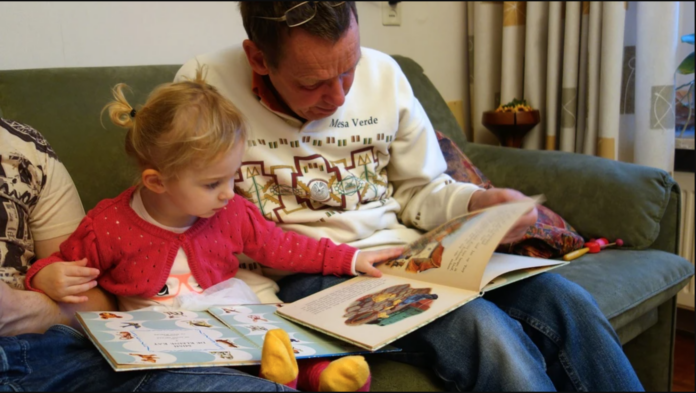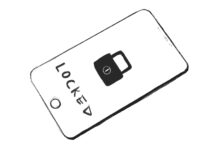By: Tom Rasmussen
Published by Vice
Mar. 6, 2017
The reason illiteracy often disappears under the radar is because, by its very nature, it is socially, culturally, and financially exclusionary.
I was 17 when I finished all 291 pages of Belle De Jour: Secret Diary of a Call Girl on vacation in Benidorm with my girlfriends. One might guffaw that Belle and her sexy, clumsy mishaps do not qualify as a real book; but even a work deemed “trash” had proved a 14-day struggle. Until then, I had never read a full book in my entire life.
Growing up in Lancaster, on the northwest coast of England, my parents were incredibly busy. They had four children, two dogs, two cats, and a snake to support. We didn’t have a bookshelf in our house, nor did anyone else we knew. As a kid, sitting down to read would see you named and shamed—reading books was for nerds.
I was far from illiterate, but the importance of actually reading was never prioritized in my world. At our school, the library had been converted into a behavioral isolation unit. We weren’t really pushed to become the book critics of tomorrow.
For me, reading is now an important part of my life. But for many people, illiteracy follows them into old age. Norman Annal, now age 69, had never really read a book until he retired. “I had my appendix out just before I was supposed to take my 11-plus [exam], and I had to stay home after that for eight weeks,” he explained over the phone. “It was a crucial time, and I just slipped through the net, dropping into classes that were ranked lower and lower until I was in the bottom set with other kids who could barely speak, let alone read and write.”
Born in Thurso, a small town at the most northern point in Scotland, Norman left school at 15 to become a construction worker. “I wasn’t ever in an atmosphere or situation where books were appreciated. Nobody ever spoke about books—there was no conversation like, ‘What are you reading now?’ or, ‘This book is so good because…'” Norman recalls. “Being a manual worker, you could be completely illiterate and manage to get by. You could go through life quite easy. If you started reading a book on a building site, people would think you were mad as well.”
Living at the intersect of being from a low-income family, slipping through the educational net, coming from an exceptionally rural area, and from a world where the cultural cachet of reading a “good book” was nonexistent and adult reading role models weren’t around meant that, for Norman, it became an unquestionable norm to never, ever need to read.
Norman now has the free time to try, late in life, to discover the joys of reading. But for many people who can’t read, there’s just no time to start. “I never read for pleasure,” explains Danielle Taylor, a mother of two and horse-riding instructor from Lancashire. “Books feel like a lot of work. I can never really remember reading at school, too. At GCSE, I didn’t understand the books—the language and stuff [of], like, Romeo and Juliet—and because I’m not a good reader, if the language isn’t my own language, I find it hard to read and boring.”
Illiteracy and poor literacy skills are much more common than you might think. The reason illiteracy often disappears under the radar is because, by its very nature, it is exclusionary. Most, if not all, modes of communication require some literacy skills: Texting, looking up a name in a cellphone to make a call, using Google Maps to find out where you’re going. That’s before the onerous process of applying for jobs, or seeking benefits, or managing your health comes into the picture. People who can’t read and write are easy to forget about entirely. Illiteracy is also culturally exclusionary: If you don’t read books or newspapers, your frames of reference become more limited. We imbibe and recount phrases and passages between groups of friends and our communities. We don’t realize how much conversation and social connection begins with reading something.
“There’s snobbery in books,” Norman adds. “Now I read a lot, and I notice that I could read a book that somebody of higher intellect would regard as trash and adore it. I would keep quiet about it in certain circles. I would say, ‘Oh, I’m reading Dickens,’ and that would get you past it all. But I’m actually reading Jane Austen fan fiction at the moment, and I love it, but I wouldn’t profess it.”
….
The importance of reading is constantly imprinted on us by way of our inability to survive without it. Stigmatizing the illiterate, or those who don’t like to read because they find it hard, comes in many forms, from judging someone’s choice of book, to laughing and joking that someone finds it hard to read aloud, or to write totally coherently (remember this next time you hilariously attack someone for confusing “they’re” and “their” on Facebook). It’s impossible to put yourself in the shoes of someone who finds reading hard, because you’ve just read this. But when reading ability is so often drawn on class and income lines, we must cast the net wider to be more tolerant of, and helpful to, people who find it hard to utilize words for their benefit.
Source: https://www.vice.com/en/article/z4knza/what-it-feels-like-to-be-illiterate-all-your-life
Comment: This article is important to help gain insight on the experiences of people who are illiterate or vary in levels of literacy. Norman, a man who didn’t really start reading until retirement, points out in his experience a lack of talking about books and reading with people in his circles. He also says there is “snobbery in books” and points out how certain circles or people of varied intellect may look down on certain books and be more approving of others. This might give insight about gaps that exist within different levels of literacy or just in different communities. At the end, it brings up a point about the stigma in being illiterate. I think this is important to consider and it may tie to shame and fear in people who are illiterate as mentioned in other articles.





“Snobbery in books” also caught my attention. People will judge you for the books you read. That probably can also be applied to the movies or tv shows you watch or music you listen to; everyone has an opinion on things they find different.